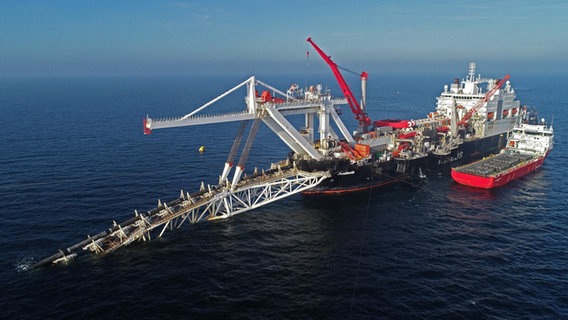Status: 03/21/2021 6:31 a.m.
Prime Minister Manuela Schwesig and Finance Minister Reinhard Meyer (both SPD) always refer to the country’s “solid financial policy”. New calculations by economic researchers cast doubt on this self-praise.
During the Corona crisis, the debt burden in Mecklenburg-Western Pomerania increased significantly more than in other federal states. This emerges from an overview by the Dresden economic research institute Ifo. Because measured by its own, already weak economic performance, the country has reached deep into the debt pot. In total, the state government took on 2.85 billion euros in new debt last year – the mountain of debt has grown to 12.2 billion euros. It is noticeable that the new debt accounts for more than six percent of the country’s own economic power. That is twice as much as the national average. The Ministry of Finance called the presentation of the Dresden economic researchers distorted. In Mecklenburg-Western Pomerania, the debt-financed expenditure is planned until 2024. Unlike in the northeast, the corona-related new debt will certainly increase in other federal states.
Constitutional concerns
This calculation has already brought criticism from the state audit office to the state government in recent months. The financial controllers complained that the government was buying things with a “shadow budget” that had no relation to the coronavirus consequences. As an example, they cited investments in broadband expansion or medical care, which were necessary even before the crisis. In addition, the credit authorization is not limited to the actual budget year, but extends over a further four years. This is one of the reasons why the Court of Auditors reported constitutional concerns and warned against a burden on future generations.
Other countries pay off their debts earlier
The Dresden Ifo Institute is now backing the Court of Auditors. According to calculations by the experts, Mecklenburg-Western Pomerania will reach the level of debt as it was before the crisis comparatively late – because the loans will only be repaid later. Most other countries are paying off earlier. The country plans to repay 140 million euros per year for 20 years from 2025 onwards. The repayment plan is considered ambitious. Even in economically stable pre-crisis times, the Ministry of Finance recently waived a repayment.
Court of Auditors seems disaffected
When asked, the Court of Auditors announced that it was only logical if the economically weakest federal state were to openly accept such high new debt that “every time hurdle was broken”. If the Treasury Department claims that this is distorting, it does not look very serious. The Court of Auditors seems disaffected. The authority said that the departure from a solid financial policy with a balanced budget and surpluses had already taken place in December 2019. The budget that was approved at the time had reached into its reserves and had already been sewn to the edge. The record borrowing had little to do with the pandemic. “A solid financial policy looks different.”
Ministries want to “block”
The state government sees it differently. Mecklenburg-Western Pomerania will “continue its solid financial policy,” announced the Ministry of Finance. The new indebtedness does not call that into question, because it occurred in an extraordinary emergency situation. However, Finance Minister Meyer and Prime Minister Schwesig have evidently awakened the ministries’ desires with the bulging and debt-financed budget. For the new double budget 2022/23, the departments want to pack a lot of money and are holding up their hands at Meyer. That makes the budget department at the Treasury’s forehead frown. “The present registrations from the departments are currently well beyond the scope of the state budget foreseeable for the coming years,” the ministry warned.
Further information

 –
– –
–

